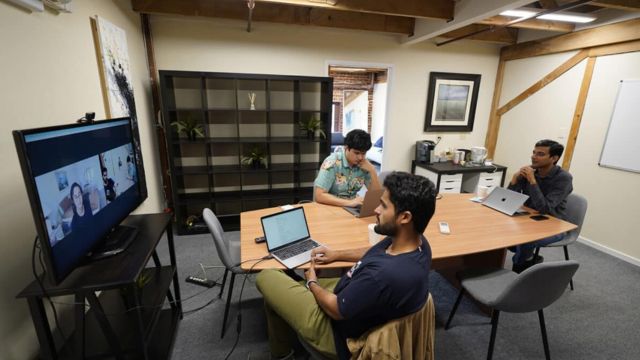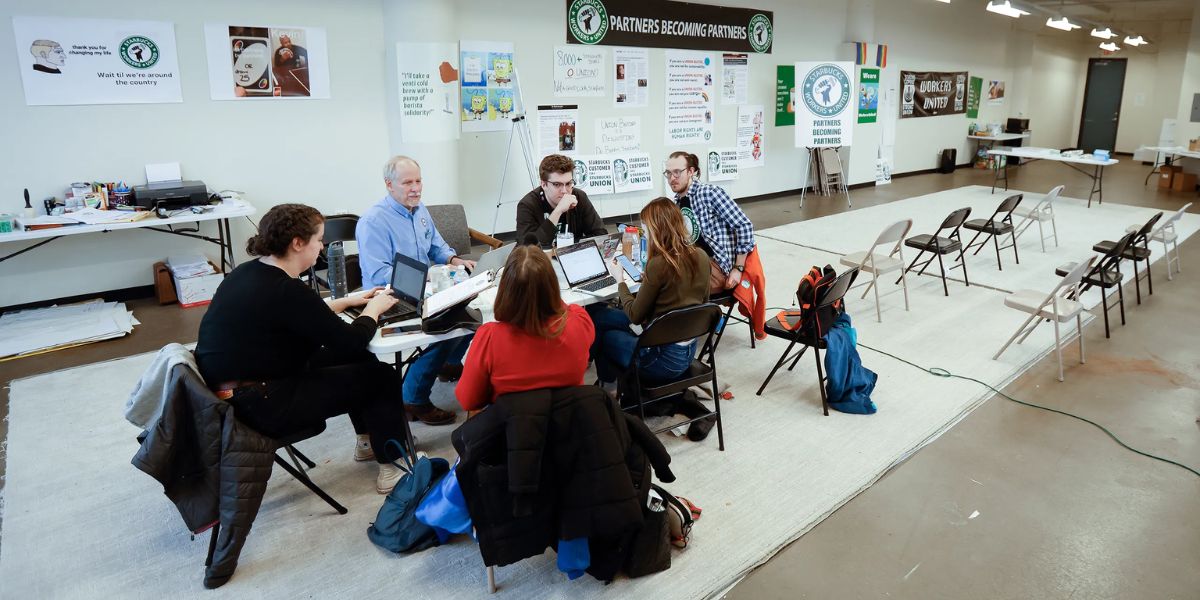WPBN: Employers in California will no longer be permitted to force employees to attend sessions discussing their political or religious beliefs, or how their employers feel about unions, as of January 1.
This is in accordance with Senate Bill 399, one of the most notable of the yearly influx of new workplace regulations that companies are supposed to abide by.
As the Democratic supermajority in the Legislature worked to encourage a growing wave of unionization in California and the country, the legislation was introduced.
The law forbids mandatory meetings at work when the employer expresses their “opinion about religious or political matters,” of which the choice to join a union is included. SB 399 prohibits disciplining employees for declining to attend such a meeting.
Although retribution from employers is already unlawful, proponents of the proposed rule, such as the California Labor Federation, claim that such meetings can deter employees from exercising their right to form a union.
The proposed rule was opposed by business organizations like the California Chamber of Commerce, who claimed it would violate employers’ freedom of expression and their rights to communicate how laws or regulations affect their sectors.
Employees whose job involves discussing politics, such as those employed by political parties, are exempt from the regulation.
California has joined nine other states, most of them Democratic, in outlawing these so-called captive audience gatherings. As the labor movement prepares for the Trump administration next month, the law’s approval was a success.
The National Labor Relations Board has also attempted to limit the meetings under President Joe Biden. For decades, previous boards have largely permitted such meetings as long as employers aren’t intimidating employees or denying benefits to union supporters.
In a case involving Amazon, the board said in November that captive-audience meetings are illegal under federal legislation that protects employees’ ability to form a union.

However, many labor experts anticipate that the ruling will be overturned once President-elect Donald Trump assumes office.
Even if employers have been suing to overturn captive audience rules in other jurisdictions, California’s ban on the meetings would still be in effect in that scenario.
New California Driving Laws Are Set to Begin in 2025: How Will These Laws Affect You?
The following other new employment legislation take effect on January 1st:
- Raising the minimum wage from $16 to $16.50 per hour. An attempt to raise the minimum wage to $18 was defeated by voters in November, although the law now in effect automatically raises the minimum wage during inflationary times.
- Additionally, employers would have to provide employees more flexibility in how they use their vacation time. AB 2123 prohibits employers from requiring workers to use up to two weeks of vacation time prior to paid family leave, which is a state program that provides compensation for workers who take time off to care for a sick family member or newborn child.
- Additionally, employees may serve on juries during sick leave under AB 2499. Additionally, the new law broadens the grounds for employees to take unpaid, protected leave in the event that they are the victims of criminal activity.
Certain industries will be affected by certain developments. In order to avoid working outside during times of intense heat, flooding, or wildfire smoke, farmworkers will be permitted to use paid sick days.
New California DMV Laws for 2025: Tackling Sideshows, Street Takeovers, and Boosting Road Safety
The right to reject to have their work reproduced or replaced by studios and production companies utilizing AI-generated “digital replicas” of their voices or images will be granted to performers and entertainers. For the first time, workplace safety regulations will apply to domestic workers hired by nanny or housekeeping services to operate in their clients’ private residences in July 2025.
REFERENCE

















































